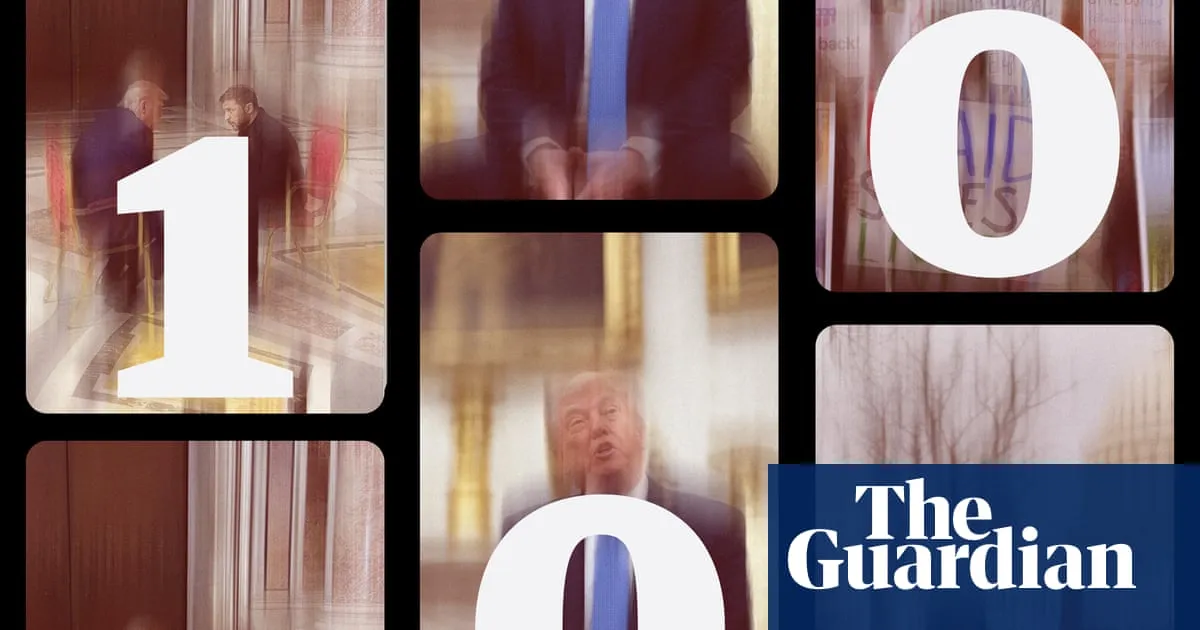
In just over three months, Donald Trump reshaped US foreign policy in ways that have profound implications for international relations. His initial 100 days in office represented a seismic shift, fraying alliances that have been in place since World War II and alienating some of America's closest allies. Trump’s actions have not only affected foreign relations but have also raised concerns about the future of global trade and international stability.
During his first three months, Trump cut off aid to Ukrainians fighting against Vladimir Putin and took steps that emboldened US rivals globally. His administration's approach has led many to describe the United States as an "unpredictable ally." The tariffs Trump imposed are set to disrupt global trade and potentially lead to significant supply chain shocks within the United States, as China's President Xi Jinping seeks to strengthen ties with US trade partners in the region.
Trump's administration has operated primarily through executive actions that have impacted nearly every aspect of US foreign policy. From military engagements to trade negotiations and immigration policies, Trump has sought to redefine America's role under an isolationist "America First" agenda. Ivo Daalder, president of the Chicago Council on Global Affairs, remarked, "The shake-up has been revolutionary, extraordinary. It’s upended 80-some years of American foreign policy."
The Pentagon faces turmoil under the leadership of Pete Hegseth, whose management style has resulted in chaos among senior staff. Leaks have also implicated national security adviser Mike Waltz in scandals. Meanwhile, the State Department, now under Marco Rubio, is undergoing significant changes, sidelining experienced diplomats in favor of less experienced envoys. Critics warn that cuts to USAID will diminish US soft power for generations to come.
Former CIA officer Steven Cash highlighted the dangers of this foreign policy chaos, stating, “There’s no better way to get us into a war… than essentially poking out your eyes and numbing your brain.” He pointed to the effects of Trump's tariffs and his erratic stance on NATO and Ukraine as indicators of this unpredictability.
In 2021, newly elected President Joe Biden proclaimed, “America is back.” However, Daalder argues that “America is gone again.” This sentiment was echoed by Ursula von der Leyen, president of the European Commission, who noted that “the west as we knew it no longer exists.” The ramifications of Trump's foreign policy have reached Europe, where leaders like JD Vance have openly courted far-right factions, suggesting a growing divide between the US and its traditional allies.
In response to these challenges, the EU has proposed an €800 billion plan for future defense initiatives. This strategic shift aims to bolster European defense capabilities amid internal divisions and a reliance on US support that may no longer be as dependable. A European diplomat remarked, “We still need America now, but there is a vision of a time when we won’t any more.”
Trump's influence is also being felt in elections, particularly in the western hemisphere. His aggressive foreign policy has caused anxiety among US neighbors, leading to a backlash in Canadian elections where the liberal candidate Mark Carney was elected, largely as a response to Trump's rhetoric and tariff policies. In Europe, populist parties aligned with Trump’s ideology are facing challenges as his trade war has made him "quite toxic" among their voting bases.
No region has felt the impact of Trump's foreign policy more acutely than Ukraine. The abrupt cessation of US military and intelligence support has fueled Ukrainian frustrations and highlighted Trump's contradictory stances regarding Volodymyr Zelenskyy and Putin. This inconsistency has created a climate of uncertainty, with Trump criticized for failing to deliver a coherent strategy for peace.
Trump has also tasked neophyte diplomat Steve Witkoff with crucial negotiations, including efforts to prevent Iran from acquiring nuclear weapons. Despite the high stakes, there remain significant differences that complicate reaching an agreement. The Trump administration's approach to the Middle East, while initially successful in brokering a ceasefire in Gaza, has faltered, leading to renewed violence and a lack of focus on resolving ongoing conflicts.
As the Trump administration grapples with multiple international challenges, the lack of clarity and coherence in foreign policy raises concerns. Promises made to vital allies and vulnerable populations, such as the Afghans who assisted US troops, remain unfulfilled. The chaotic nature of this administration's approach to national security and international relations leaves many questioning the credibility of US commitments on the global stage.